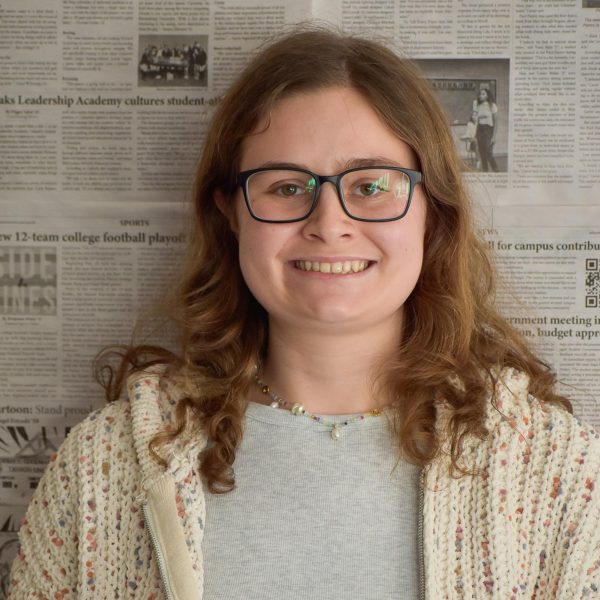The “Thinking Trans // Trans Thinking Conference,” hosted by Lafayette College, encouraged complex discussions on the intersection of transness and philosophy this past weekend.
Held in the Gendebien Room in Skillman Library over two days, the conference brought transgender philosophers, theorists and professors from all over the globe together both in-person and virtually for a series of presentations surrounding trans issues in philosophical disciplines.
“If you’re a trans philosopher, you might see other trans people sometimes at various conferences, but there’s something special about bringing us all together in one space to see the different work that we do,” said philosophy professor Amy Marvin who hosted and moderated the event.
Marvin, as the current Louise M. Olmsted Fellow in Ethics, helps run a series of conferences throughout the year.
Some of the panels included “Trans Rights, Law, and Politics,” which featured a talk from prominent trans-rights lawyer Jillian Weiss, and “Trans Figurae and Our Discontents” by keynote speaker Trish Salah, a renowned Arab-Canadian poet, activist and professor.
“It was an interesting talk because she would get very current moment and then very abstract into the psychoanalysis, and then jump back,” Marvin said about Salah’s presentation.
Salah later emphasized the importance of highlighting trans voices in academic settings during this time.
“Trans people have historically been treated as objects of knowledge rather than as knowers, as others rather than subjects,” Sarah wrote in an email.
“Currently we are in a moment where governments, in the US, in Hungary, in Russia, in parts of Canada, are attempting to do more than other, it is attempting to erase trans people, to legislate us out of existence,” Salah continued. “I think doing work to refuse that erasure, in the university, in social services, in the law, in the arts—wherever we are—is very important.”
Nathan DuFord, author and assistant professor of government at Smith College, was the second keynote speaker chosen for the conference and did a presentation on “A Political Theory of Trans Antagonism.”
“I think what was really interesting about it was just looking through the lens of culture at the related issues about transness, so you sort of got this overlap of culture and philosophical questions from it,” Duford said.
Marvin said that while there were many people who attended the conference both virtually and in person from outside of Lafayette, many students and faculty attended the conference as well.
“I’m used to social justice questions and things like that from a lower level or easier level,” said Matthew Simpson ‘27, a philosophy major who attended the conference. “I haven’t really been exposed to more higher level schools of thought around this, so it’s nice to see people who have different perspectives.”
Marvin said that while she hoped the conference helped to foster agreement and camaraderie, she also hoped that it would encourage critical discussions over trans issues and help attendees gain exposure to controversial ideas they wouldn’t have otherwise.
“I very much want people to disagree and sometimes run into conflict with each other’s ideas because that’s productive as well,” Marvin said.
“There was a general principle throughout of making philosophy something which does have a real world impact and needs to be, in a sense, more critical or actively controversial to combat the currently critical or controversial state of the world,” Simpson said.
Marvin helped found the conference series in 2016 at the University of Oregon along with Megan Burke and Fulden İbrahimhakkıoğlu, called the “Trans* Experience in Philosophy Conference” at the time. It was the first-ever trans philosophy conference.
“Since then, the name’s changed a few times, but we’ve been running these ever since,” Marvin said.
Marvin said she received around 150 proposal submissions for the conference this year. Many of the presenters selected came from international backgrounds and supplied a unique range of thoughts. She added that she chose the keynote speakers based on the scope and relevancy of their current research.
“I invited people who I think are currently doing or have done a lot of really interesting work, but haven’t been directly included in the conference,” Marvin said. “The goal was to have as different and diverse a crowd as possible.”
























































































































